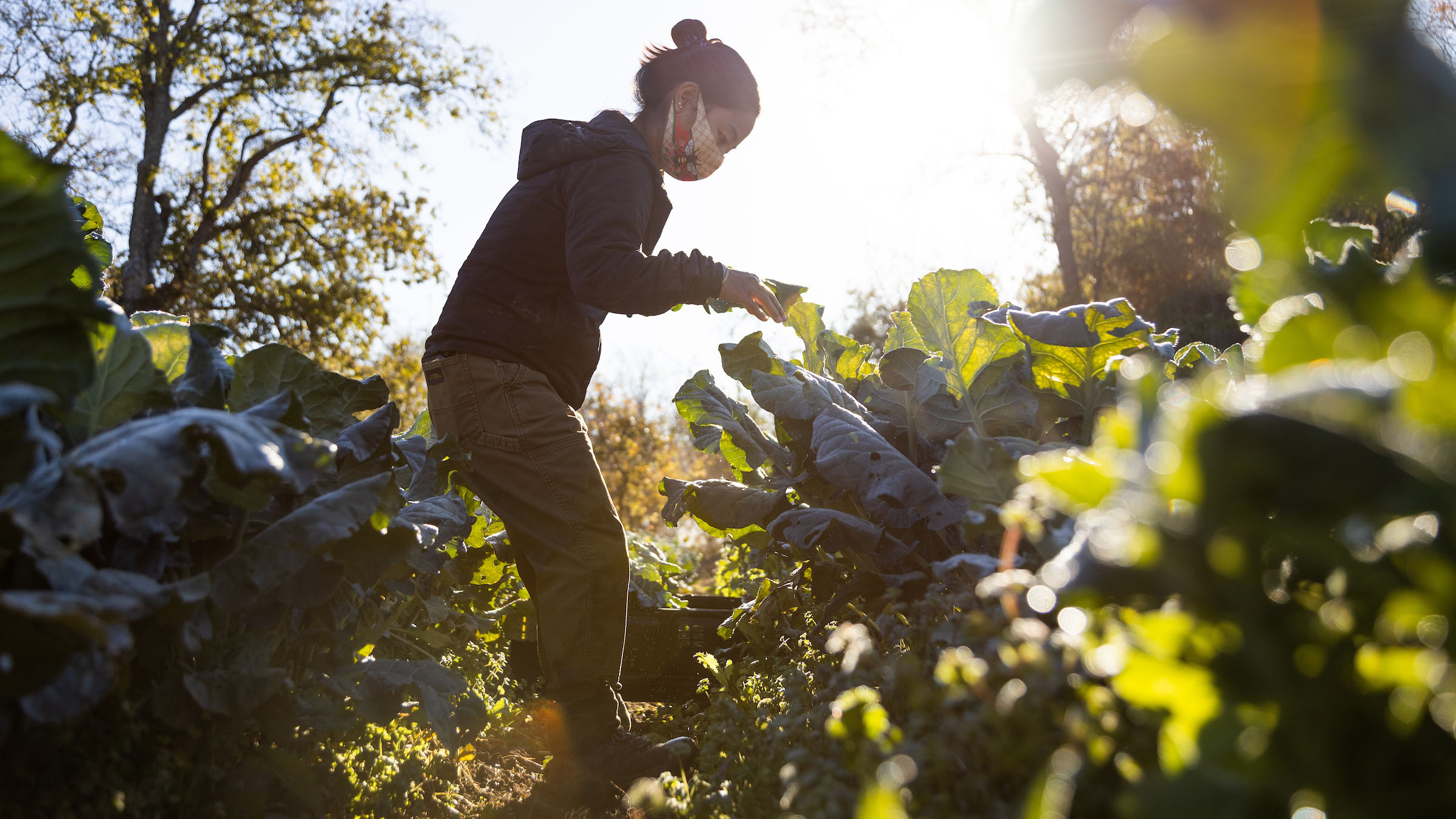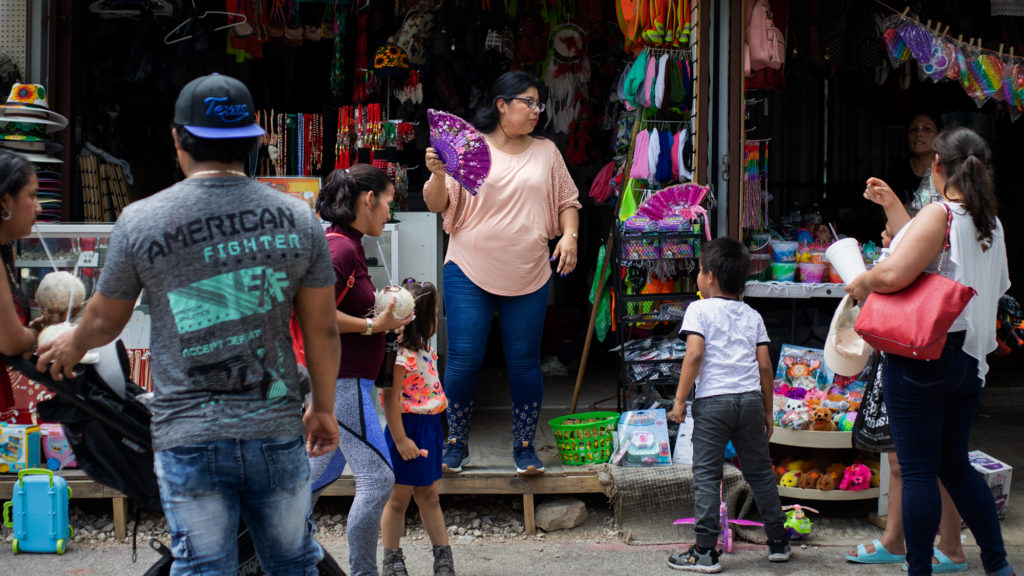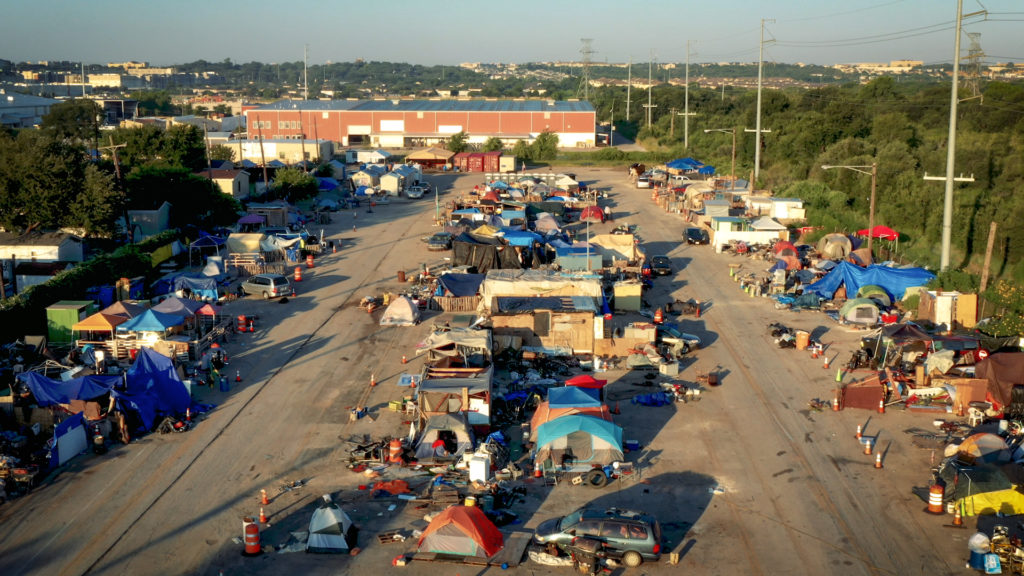Click the “play” icon on the image above to watch a short film about Farmshare’s Farmer Starter program.
Before the Covid-19 pandemic, few Americans had ever seen their grocery store shelves completely empty or food pantry lines stretching for miles.
But the spread of the coronavirus laid bare several key vulnerabilities in the nation’s food system — from massive disruptions in the supply chain to volatile food prices. The ensuing economic downturn pushed more people into food insecurity, and emphasized the inequities already inherent in food access.
Outside Austin, Texas, on a ten-acre organic farm just 20 miles from the Texas State Capitol, the small team at Farmshare Austin rushed to fill the gaps as well as they could. As a nonprofit dedicated to improving the resiliency of the food system, Farmshare was well aware of long-standing issues related to food access.
“All of the systems we use for distributing food immediately had to change,” said Andrea Abel, executive director of Farmshare. “Congregate feeding for people who are unhoused, we could not do that. School lunch, which is one of the strongest nutrition programs in the country, could not happen because students were not in school. People who had SNAP benefits could not use them to purchase groceries online. These were some of the examples that really smacked us all in the face — that, boy, this system is broken.”
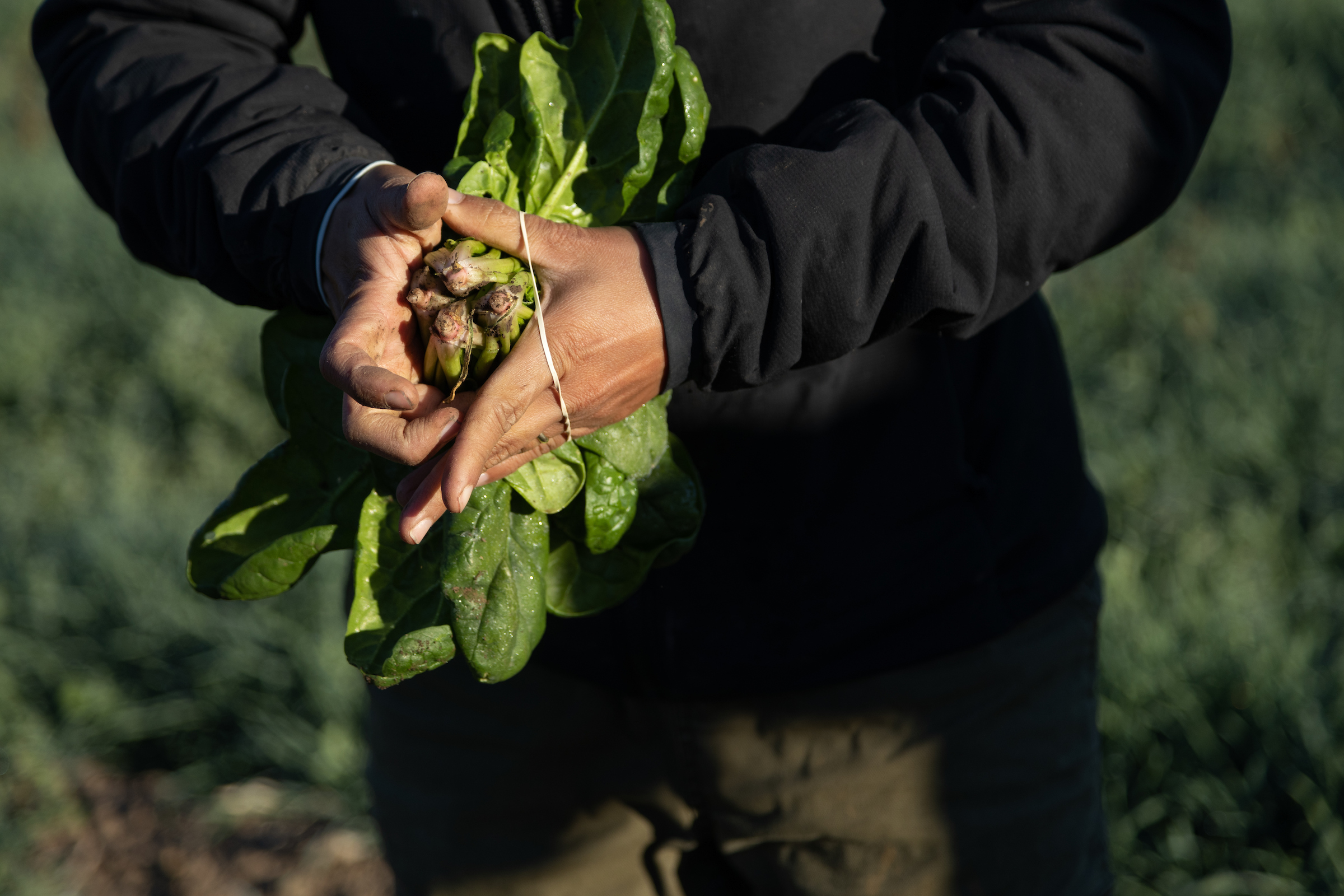
Farmshare education coordinator Marissa Beveridge harvests spinach on the organization’s 10-acre certified organic farm. Some of the produce grown on the farm is distributed in the Fresh for Less program, which switched to a curbside delivery model in response to the pandemic.
Farmshare’s Fresh for Less program, a partnership with the City of Austin, provides healthy food to people in their own communities through mobile markets that accept federal Supplemental Nutrition Assistance Program (SNAP) benefits and Double Up Food Bucks, which match SNAP dollars on purchases of fruits and vegetables.
Before the pandemic, Farmshare held its mobile markets at places like community health centers and housing complexes, which closed to visitors as Covid-19 spread.
“Within a two-week period, we took our Fresh for Less food-access program and pivoted from mobile markets to a curbside home-delivery program,” said Abel.
Farmshare also closed its farm to volunteers, but was able to continue its Farmer Starter program, a 20-week education course designed to teach people about sustainable agriculture. As the pandemic wore on, they noticed a change in that program as well.
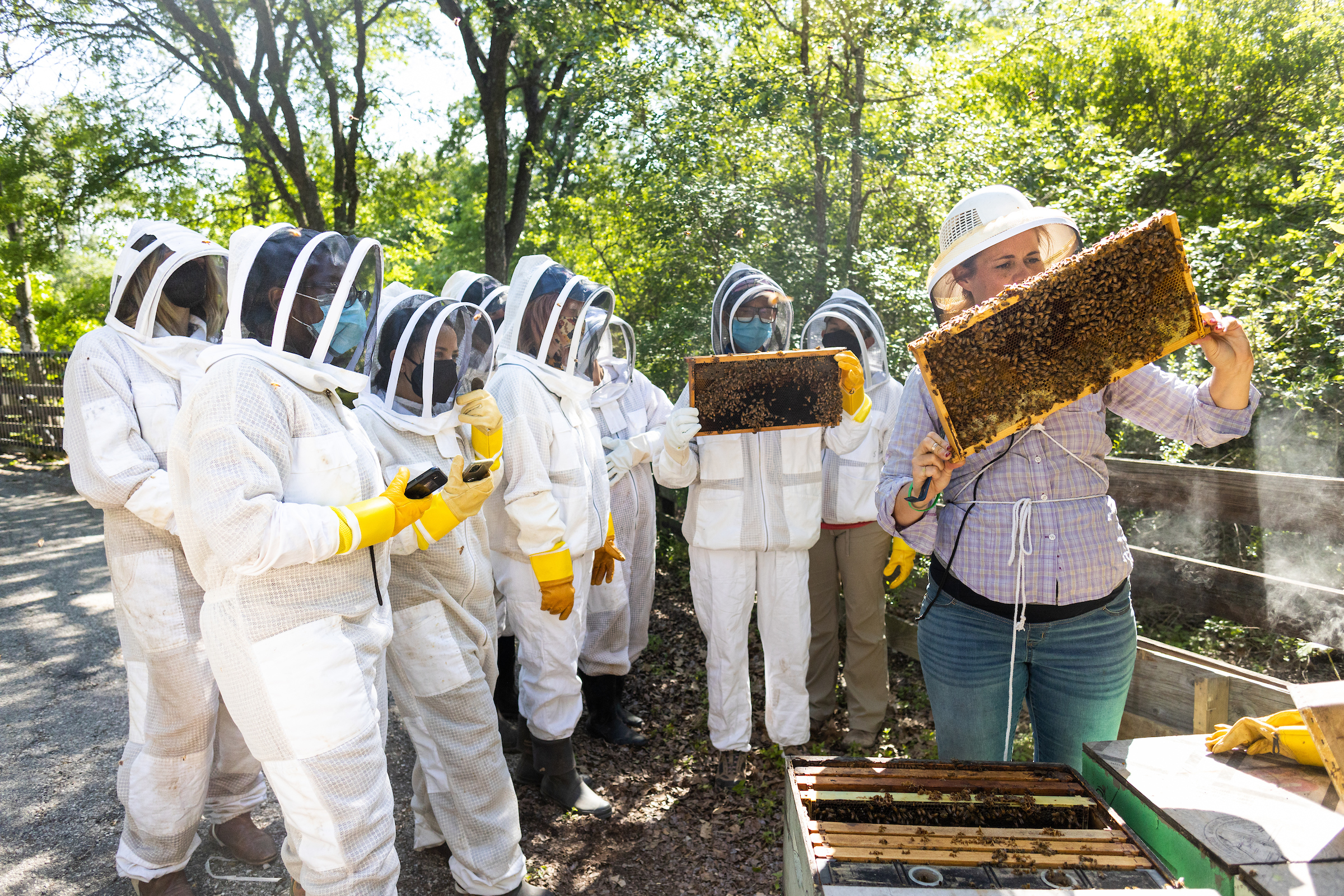
Students in the Farmer Starter program get a beekeeping lesson from Tara Chapman, founder of Two Hives Honey, in Manor, Texas. As part of a 20-week course on sustainable farming practices, the students visit other local farms to learn about different aspects of the food system.
“We were floored by the number of applications we got for this spring Farmer Starter class — at least three times the normal number of applications we’ve been getting,” said Abel. “We feel it’s a combination of people knowing more about Farmshare, and an increased understanding of a broken food system and the role we each can play in building resilience into that system.”
Farmshare’s typical class size of four increased to 12 in spring 2021, and new students, through a combination of in-the-field training, remote lectures, and field trips to other local farms, began learning about sustainable agriculture, and what their role in the food system could look like.
The program costs $3000, but offers need-based scholarships and work-share options to offset tuition for those who can’t pay full price. Farmshare also uses a need-blind admission policy, so a student’s financial situation is not a factor in whether they are accepted.
Some students signed up because they wanted to become farmers, but others were interested in policy-making or community-building around food, or increasing food access in their own neighborhoods, or starting a miniature golf farm.
“I don’t think of myself as a farmer,” said Chris Gonagaware, a Farmer Starter participant who bought a small piece of land in Bastrop, Texas, where he hopes to someday grow most of his own food. “I’m one man with a quarter of an acre that he’s working on. The semantics of this really hit me, where it’s a ‘farmer starter.’ The program gave me a chance to find out who’s the farmer I want to be.”
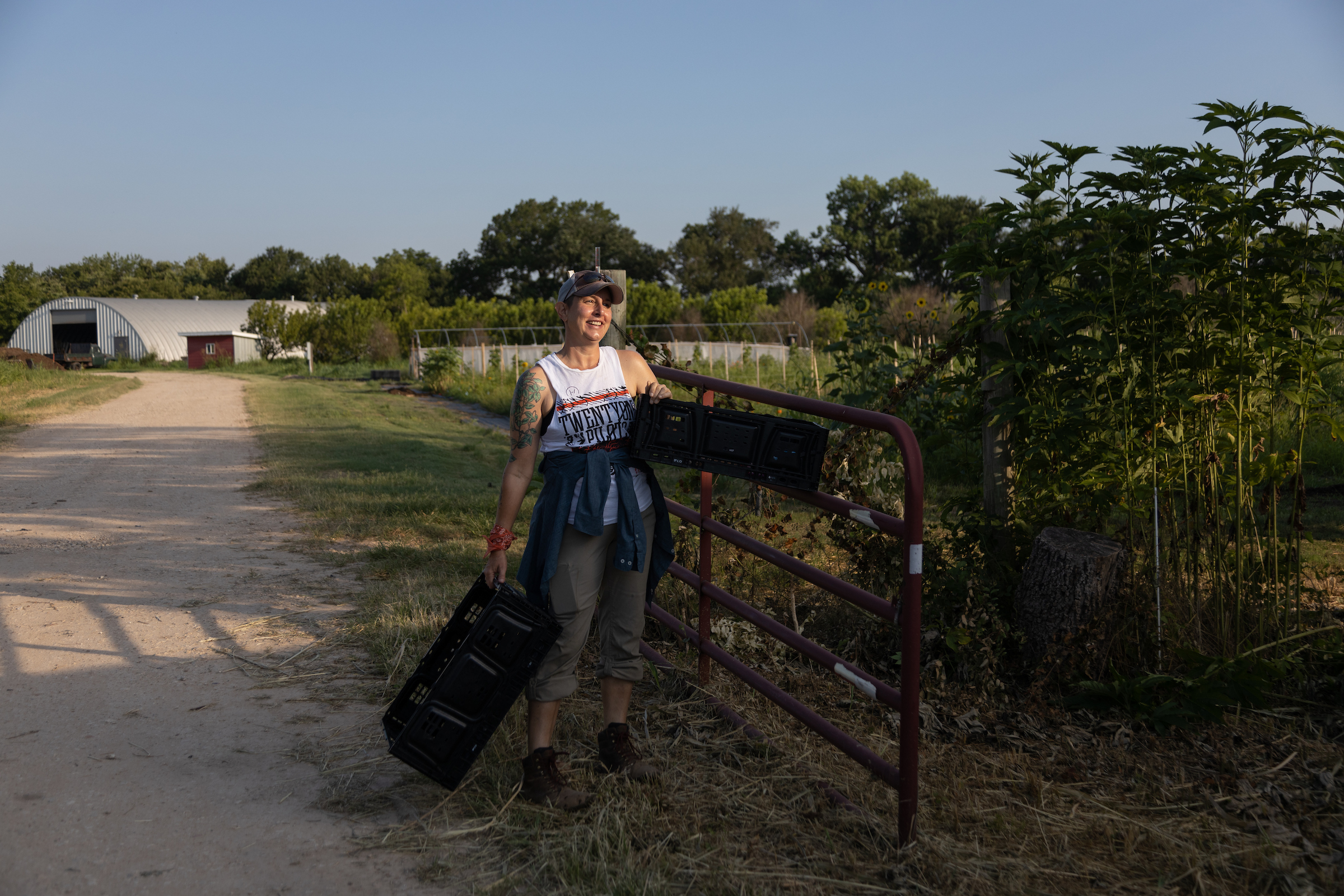
Farmer Starter student Amalia Parry left her corporate job looking for something new. At the suggestion of a friend, she began volunteering at local farms. “It never crossed my mind that farming was a career choice,” said Parry, who, after graduating from the program, now works as an assistant farm manager at Farmshare.
Abel is now in conversation with the City of Austin about how to address gaps in the food system exacerbated by the pandemic and Winter Storm Uri. The Farmer Starter program prepares students for similar types of conversations, arming them with a greater understanding of the food system and sustainability.
“We are super excited because, in addition to our large class this spring, we got an overwhelming record number of applications for our fall class,” said Abel. “And we hope the momentum continues for us into the future. We are quickly going to outgrow where we are.”
For now, they are working with their second largest class of Farmer Starter students, and beginning to open the farm back up for volunteers and community events. But even as COVID-19 cases go down, food insecurity in Austin, and across the country, has risen.
“The underlying food access, food insecurity, food system issues that we face as a community — those are still there,” said Abel, “And if we just forget about them and wait until the next crisis, we’re going to be in the same place we were last March with empty grocery shelves and farmers in crisis and and food service workers being laid off. We can’t do that.”

